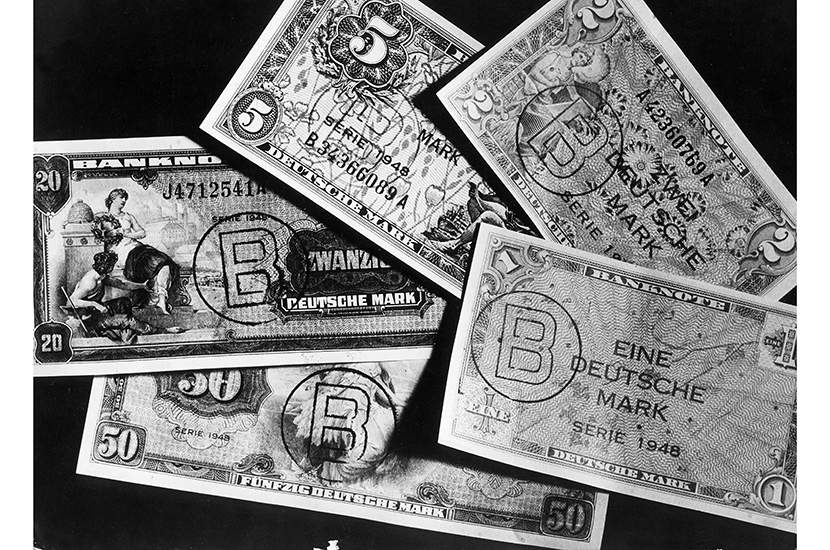Lord Macaulay wrote that ‘during the century and a half which followed the Conquest there is, to speak strictly, no English history’, because everything in England was decided by an elite who spoke French. This, of course, makes it one of the most fascinating and overlooked parts of our national story.By a similar token, the years 1945-1955 have been neglected by German scholars, because their national history, in Macaulay’s terms, also did not properly exist. Germany, prostrate, shorn of its ancient east, its fate as yet undecided, was entirely run by occupying powers. Yet, as Harald Jähner argues, this is the very era which defined modern Germany. His Aftermath is what every reviewer longs for: a scholarly masterpiece which is also a good read.
The material is as grim as can be imagined, and Jähner pulls no punches. But he doesn’t allow his story to degenerate into a catalogue of horrors. Instead, we are offered anecdotes and incidents, each memorable, many illustrated by newly discovered photographs, which build into a history which reads like a prelude to Waiting for Godot, that great work of 1949. In vignette after vignette, people remain people, however apocalyptic the events they have just participated in or witnessed or had visited upon them; and the extraordinary horrors of war are tidied away, like the ruins of Germany’s cities, by men and women with their eyes firmly fixed on what — if anything — is for dinner.
The Cold War was blowing hot, so the western Allies needed Germany back on its feet, pronto
As the dark human comedy plays out on the brink of the abyss, logic seems to have been annihilated: Russian POWs commit mass suicide rather than be repatriated; Jews flee to Germany from pogroms further east, to be housed in a specially assigned town in Bavaria, not finally vacated until 1957; hapless British and American military guards make ad hoc alliances with German POWs — who remain disciplined even in defeat — against multinational displaced persons, who, liberated, are taking orders from no one.







Comments
Join the debate for just £1 a month
Be part of the conversation with other Spectator readers by getting your first three months for £3.
UNLOCK ACCESS Just £1 a monthAlready a subscriber? Log in